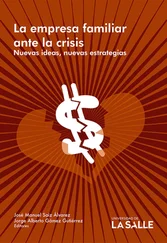Only the Writer discerned, amid the blue-green mass of the past, between the sinuous, oscillating lines of lost memory, time itself. And saw that the past is made up not of hard, tangible memories that can be recovered at will, but of vague blue and violet memories — not red, not hard nuggets. And he conceived of writing a detailed report that he inserted into a chapter of the Book where he mentions in passing, without its being his primary concern, the solution he arrived at to the technical matter of time travel. And to ensure that it would more easily reach the minds of dull readers (that is, of the public) he used the words “lost time” (etcetera) in the title of his book. A book, he seemed to be saying, that also attempted to offer a solution to the question, so much in vogue during his era, of time travel. A man who wasn’t afraid to resort to a small deception, a minor imposture, in order to advance a project, oiling it just enough so that it could be introduced with minor friction or noise into the minds of his contemporaries. Later the Book would be cleansed of it; the more intelligent men of coming generations would know that this, the matter of time travel, was not the subject of the Book, was only mentioned in passing. And what was his subject? Everything, all things, all men, the greatest book ever written, a summation of all experience … human experience? Human experience.
Nor did the Writer ever speak of or allude to any “time machine.” For when Wells speaks of the “time machine,” he’s referring to an actual machine, a mechanical device that allows you to travel in time, enter the fourth dimension, physically. The machine seen or glimpsed as it makes its way through the puff pastry of the ages, biting into and pulverizing an enormous swath of lives, a wheel or plate of diamond that cuts straight through with perfect ease, never encountering a hard bone to gnaw at, a prince, a princedom, a particular year. All of it neatly reduced to dust.
2
I was left with a single woman, as the Writer was left with Albertine alone, among all the girls in the little band: Andrea, Rosamund, Giselle. Among the compulsive gambler I’d been imagining, the murderess, the international con artist, among the multitude that your mother — cloned into an entire band of bad and perfidious women — had been until that day, I’d chosen a single one. Just as the Writer chose Albertine. I listened to her, my eyes brimming with tears as I sat with her on the leonine sofa, entering into her tale of love and diamond cutters.
She told me everything, very animatedly at first. How they had to strip, in those workshops, and run in single file, completely naked, with the quick, awkward gait that women (not triathletes) have when they run: elbows too far from the torso, hands in the air in front of them, fingers open very wide. Watched at every moment by guards who kept them from hiding anything in their bodies, a half-cut gem, a diamond they could finish polishing at home.
And she, in her tale, coiffed, as in one of those films that touch my heart when I see them, with a lovely little white handkerchief. The modest attire of a young girl from the provinces who’s never stolen anything, the simple dress beneath which, despite its baggy cut, the shape of her body can be discerned, the shoulder blades and delicate back of a very beautiful woman: who knows how she’s involved, why she’s part of this sordid story? Pure innocence in her thick eyebrows, her way of wearing the kerchief or babushka, her dress gray, the kerchief white.
She’d been cutting gems for years, allowing the blinding brilliance of certain stones, the real diamonds of Yakutia, to make their way into her eyes and groove thick furrows in her irises, which are striated now as I watch her from a distance boarding the factory bus, looking for a place to rest her poorly shod feet: a pair of some kind of round, heavy worker’s boots. Without ever, for one second, she told me, gazing into my eyes, without ever for one second thinking of keeping or stealing any of the stones.
That, stooping low over the faceting machine or raising a cup of tea to her lips, garbed in the white lab coat of a cutter, was where she met Vasily. He approached without her noticing that she was being observed by that right eye of his with all the intensity of a gemologist. Or a monster, a giant cephalopod waving its tentacles, floating through the empty air of the factory restaurant one afternoon in E*.
From where, in the end, he scooped her up or abducted her and bore her down into the depths of an empty, provincial life. The hours he spent displaying his vast repertory of circus tricks to her, the way he could lift her with one of his tentacles, spinning her high above as she blushed and laughed, her hair falling amorously across your papa’s horrible suckers (my papa? yes, your papa: listen), allowing him to deposit in her bosom a miniature image, the homunculus of an odious child who would grow up with his hair always too long and his ears always dirty. Such horror. The awful resemblance of Caliban, the child, to his father, horrid Prospero; the angelical sweetness of Miranda.
“All that in the Writer?”
“Not all … I can tell you where Caliban, Prospero, and Miranda are from. They’re from another writer, but what does it matter? From another great writer …”
3
The fright I had, the fear I felt when I raised my teary eyes to your mother’s, not wanting to believe, unable to fathom that her lovely clavicle, her soft shoulders, had born such weight, that your father, so inconsiderately, without calculating the pressure of his horrible embrace, had dragged her into that life of privations like the owner of a delicate alpaca who burdens it with a heavy load and drives it along a precarious mountain path with continual thrashings. And I moved nearer and spoke to her and told her I was there … to save her! (To save her? To save her!) With such vehemence that she could only smile at my impulse, first drawing closer to me, then changing her mind and standing up with a smile, touched or amused, I couldn’t tell, changing a record, her neck and shoulder blades smiling at me.
She waited for the music to come on, making sure it was the record she wanted, and turned with another smile on her lips: months of goodness and dry towels on the bathroom shelves. The golden eyes of a woman no longer young, older now than the girl Vasily had swung through the air for whole nights. And I was older, too, you know? Than fifteen or ten years ago. All of us, necessarily, older than ten or fifteen years ago, and slower. But don’t I like slower songs nowadays? Melodies that make my sandals speak with greater sincerity than the frenetic boogie-woogie of my dancing shoes? The way I went over to her, the drop of sweat that fell from my arm, inside my shirt, fell and left a discernible and isolated wet spot on my waist.
Afraid of frightening her, with a parsimony similar to Lifa’s, in the kitchen, making her way among the copper pots, bending down, slowly lowering her torso to one side to check the height of the stove’s flame. In which the two of us danced, Nelly’s face and mine, our faces consumed by fire, the blue tongues of my passion, the impulse that led me to inhale the aroma of her hair, bewitched by the arc of her brows, revolving at the center of a slow song that astonished me when I heard its first chords because I said to myself: jazz, but without being able to tell you, you up in your room at that moment, to interject a rapid commentary, overlooking for the moment the commentaristic (or belated? or belated) nature of jazz. A song that now, each time I hear it, of course.
Intending this in every turn of the dance, making this clear: whatever she wanted from me, without a second’s hesitation. Anything, so as to show her … Anything. The molecules of my soul arrayed in a unique pattern, through which would always blow, through those molecules, the same air, the same tune. Wherever I might happen to be, in whatever segment of my future life. Forever back in that same afternoon, the uproar and shock that first reached my central nervous system and assaulted me there before I understood anything fully, the horror of your father, the octopus, having watched us through many bars of the music now, from the other side of the glass. Falsely modest and all the more terrible for that: Like a king standing in line outside a theater so long as the authorities haven’t been notified that he’s there.
Читать дальше












